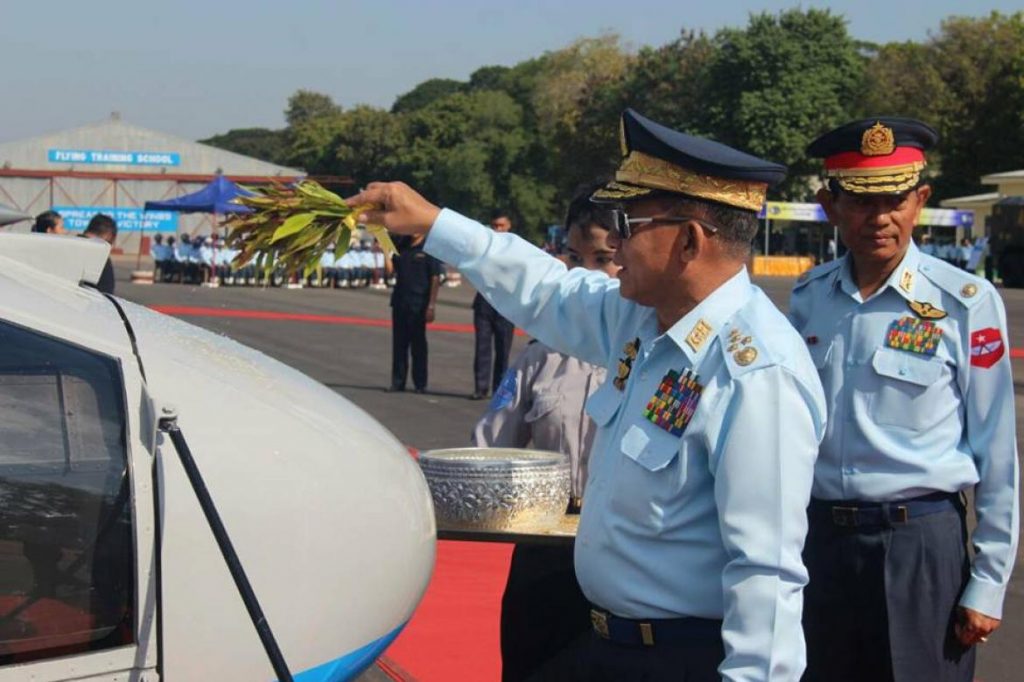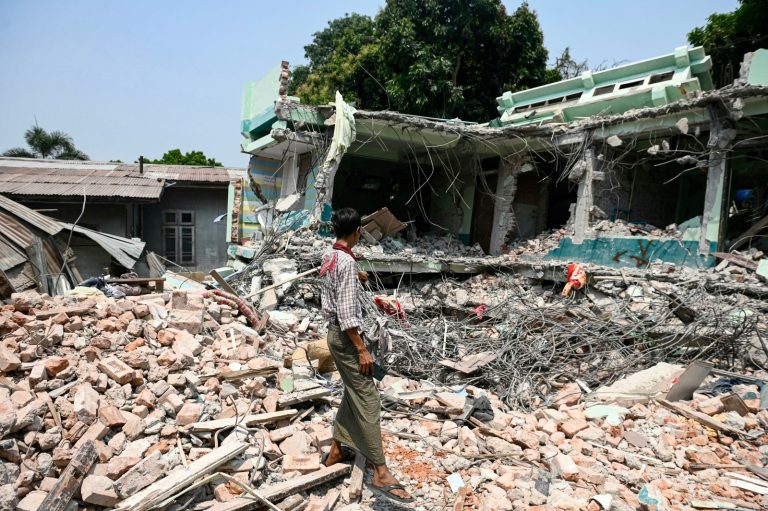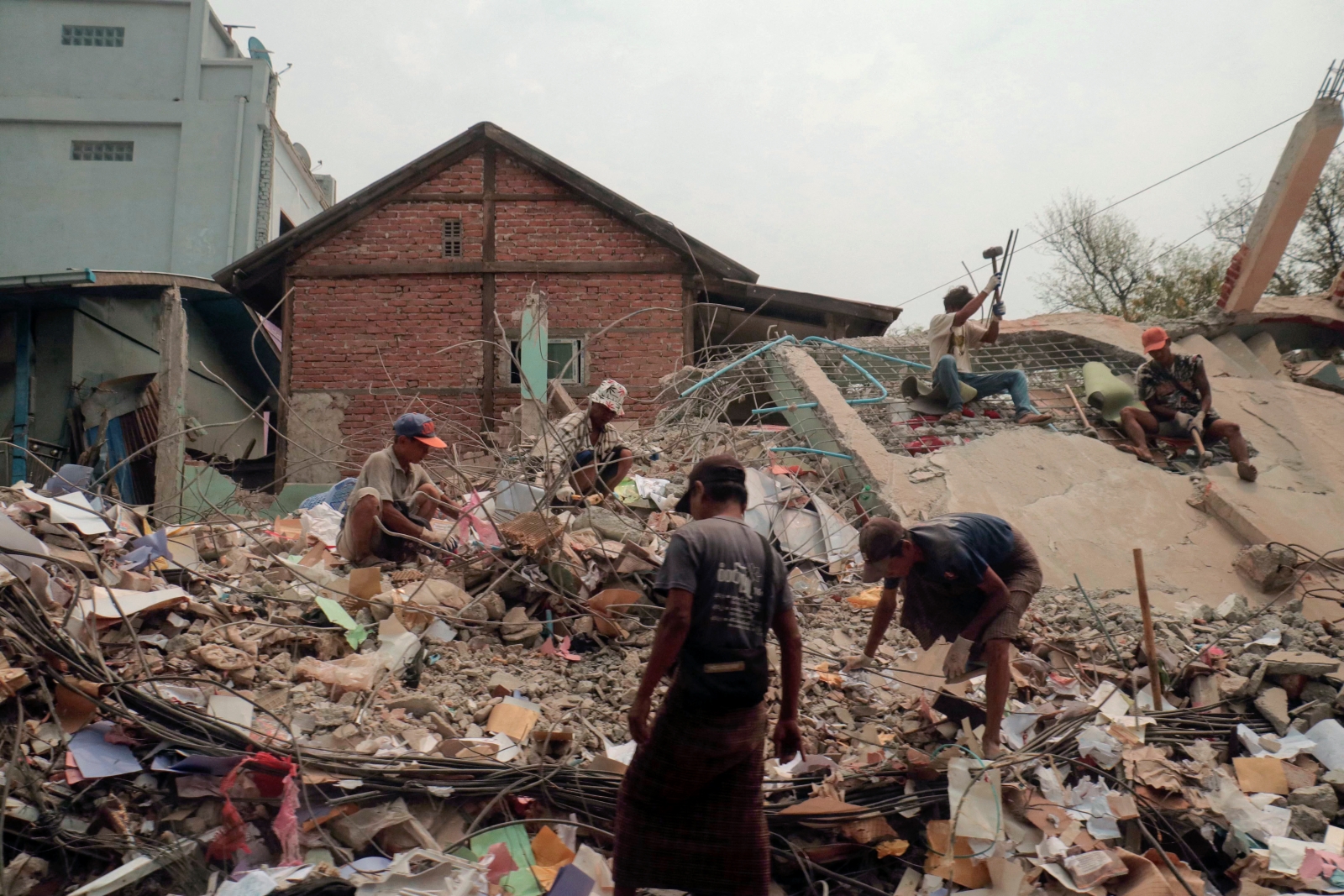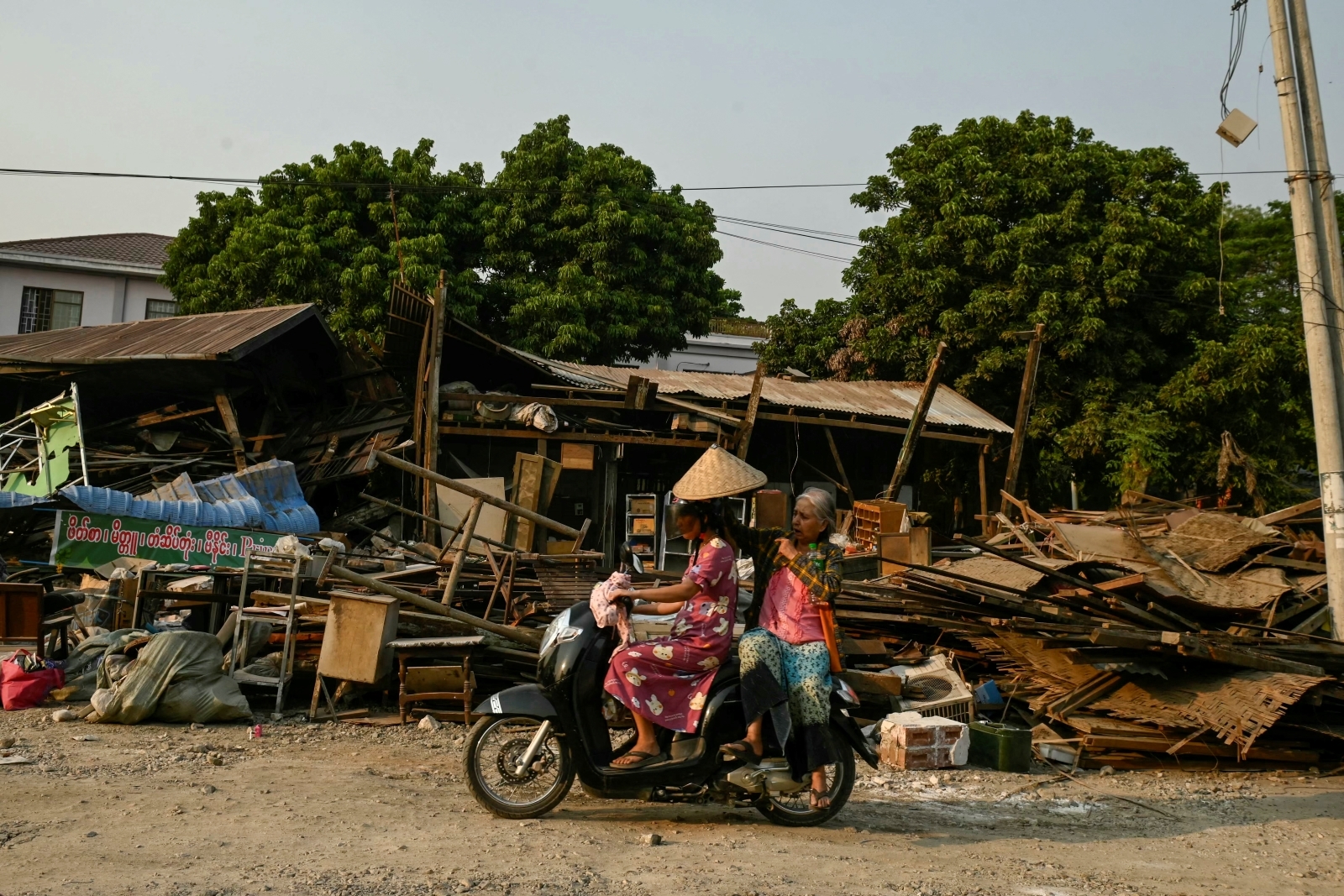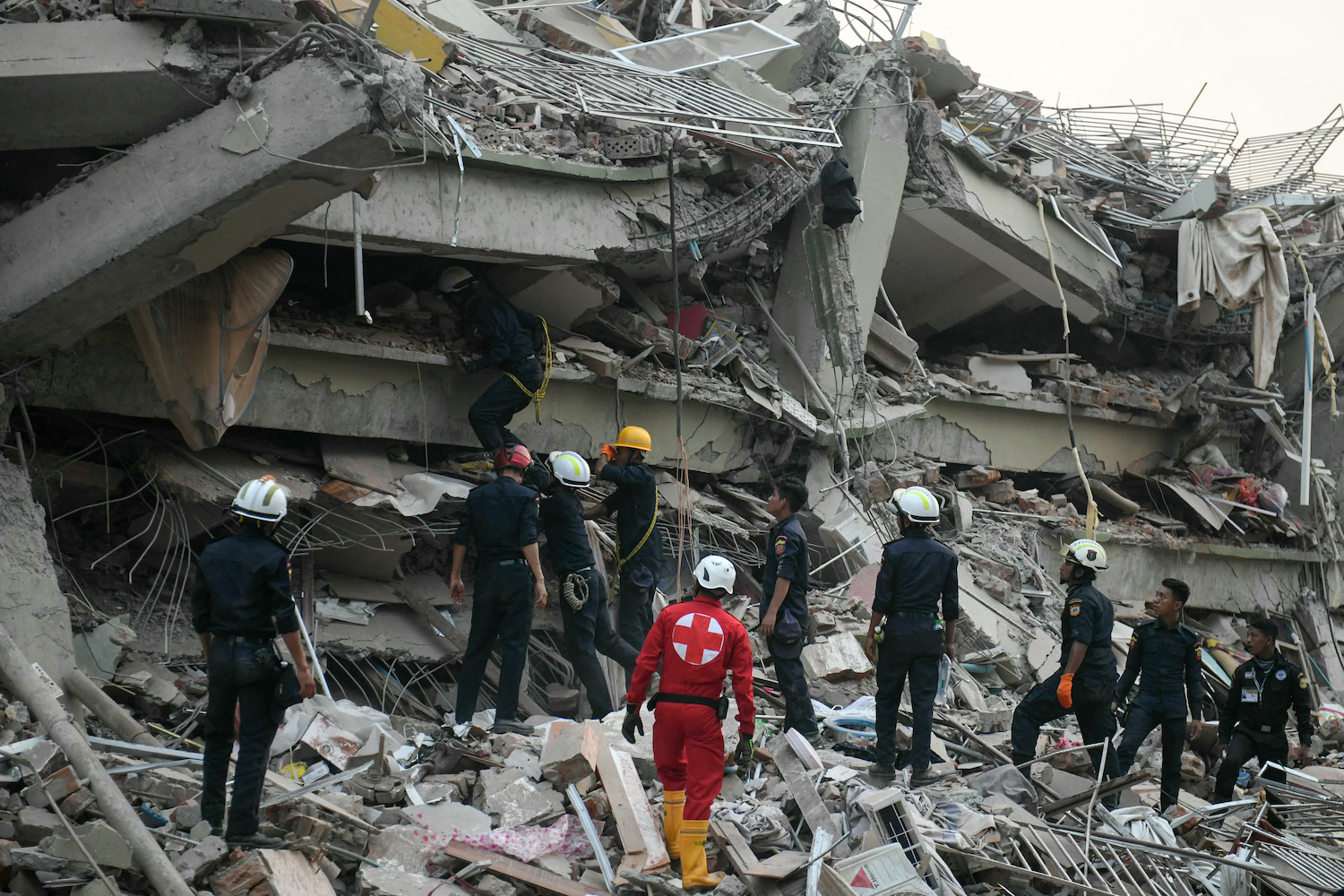The Tatmadaw has acquired civilian aircraft made by European companies despite a tightening of the arms embargo in response to alleged atrocities in Rakhine State.
By THOMAS KEAN | FRONTIER
ON DECEMBER 15, Tatmadaw Commander-in-Chief Senior General Min Aung Hlaing commissioned six airplanes and a helicopter to mark the 71st anniversary of the air force.
Among the aircraft on display were two ATR 72-500s, produced under a joint venture by France’s Airbus and Italy’s Leonardo, and an AS365 produced by Airbus Helicopters.
In a post on his website, Min Aung Hlaing described it as “a significant day for the Tatmadaw and the State” because the new aircraft would help upgrade the “aviation power” of the air force and the “defence capability” of the Tatmadaw.
Western governments have taken steps to restrict arms sales to Myanmar in the wake of accusations of genocide in northern Rakhine State, so how are European brands still finding their way into the branches of the Tatmadaw?
Support more independent journalism like this. Sign up to be a Frontier member.
Although the ATR 72-500 and AS365 are both civilian in nature, the sale to the Tatmadaw of these aircraft by a European company may constitute a breach of sanctions.
In response to what it described as “ongoing widespread, systematic grave human rights violations” by the military, the European Union in April expanded its arms embargo to include what are referred to as “dual-use goods”: items that can be used for both civilian and military purposes.
The measures prohibit the export of dual-use goods for military use or military end-users or the Border Guard Police, a spokesperson for the EU delegation in Myanmar said.
EU member states are responsible for implementing the ban. But according to the EU delegation, they cannot authorise exports to a person or company in Myanmar, or for use in Myanmar, if they have reasonable grounds to believe the end user might be the military or BGP, or that the goods might have a military end-use.
A spokesperson for the French embassy in Yangon said France had not issued any authorisation for the export of airplanes or helicopters to the Tatmadaw.
“France strictly applies the provisions of the European Union’s embargo on Myanmar, which prohibits the export of military equipment and dual-use goods intended for use by military forces or border police,” the spokesperson said.
Similarly, Airbus Helicopters said it was “not involved in any sale of helicopters to the Myanmar military”. ATR did not respond to requests for comment.
According to the EU, member states have a responsibility to investigate a possible breach of sanctions and impose penalties. The French embassy declined to comment on whether it intended to investigate, describing it as an “internal and confidential” matter.
Most likely the aircraft are not new and were bought from within the region, as third parties outside the EU are unlikely to be covered by the restrictions unless there are broader United Nations sanctions in place. Both the ATR 72 and AS365 have been around for many years and are widely used, so there would be plenty available for purchase.
Although the air force predominantly uses fighter planes from China and Russia, it has also built up a small fleet of European-made planes and helicopters since EU sanctions were lifted in 2013.
Germany in particular has sought to develop close ties with the Tatmadaw. The air force has already purchased 20 Grob G120TP training aircraft and as recently as April 2017 Min Aung Hlaing toured the Grob factory.
Mr Mark Farmaner, director of Burma Campaign UK, said that European countries had previously adopted different stances on their companies doing business with the military.
Since the escalation of violence in Rakhine in August 2017 though there has been a much greater reluctance to deal with the Tatmadaw. Germany has “tightened things up”, Farmaner said, so a company like Grob is unlikely to make any more sales.
“Sentiment is finally shifting,” he said. “Stricter interpretation of EU sanctions by member states combined with growing awareness of the reputational risk will result in reduced sales of equipment to the military.”
Still, there was some reluctance from EU member states to close the door completely on doing business with the Tatmadaw.
“Burma Campaign UK proposed that rather that tightening the arms embargo, the EU simply ban the sale of any equipment at all to the military. This was discussed as an option and it is significant that the EU rejected this proposal.”
The other four aircraft commissioned on December 15 were described as JF-17 fighter jets that were bought under a contract with Pakistan.
The JF-17 was jointly developed by the Pakistan Aeronautical Complex (PAC) and the Chengdu Aircraft Corporation (CAC) of China.
In late 2017 Pakistani media reported that the country had cancelled the contract in response to alleged atrocities in Rakhine, but this has not been officially confirmed. The unveiling of the aircraft on December 15 suggests PAC will fulfil the lucrative contract for 16 planes, estimated at US$560 million.
Both the Tatmadaw True News Information Team and the Pakistan embassy in Yangon declined to comment.
Amendment, January 11: The photo that originally accompanied this article showed a JF-17 fighter jet that was reportedly bought under a contract with Pakistan.


